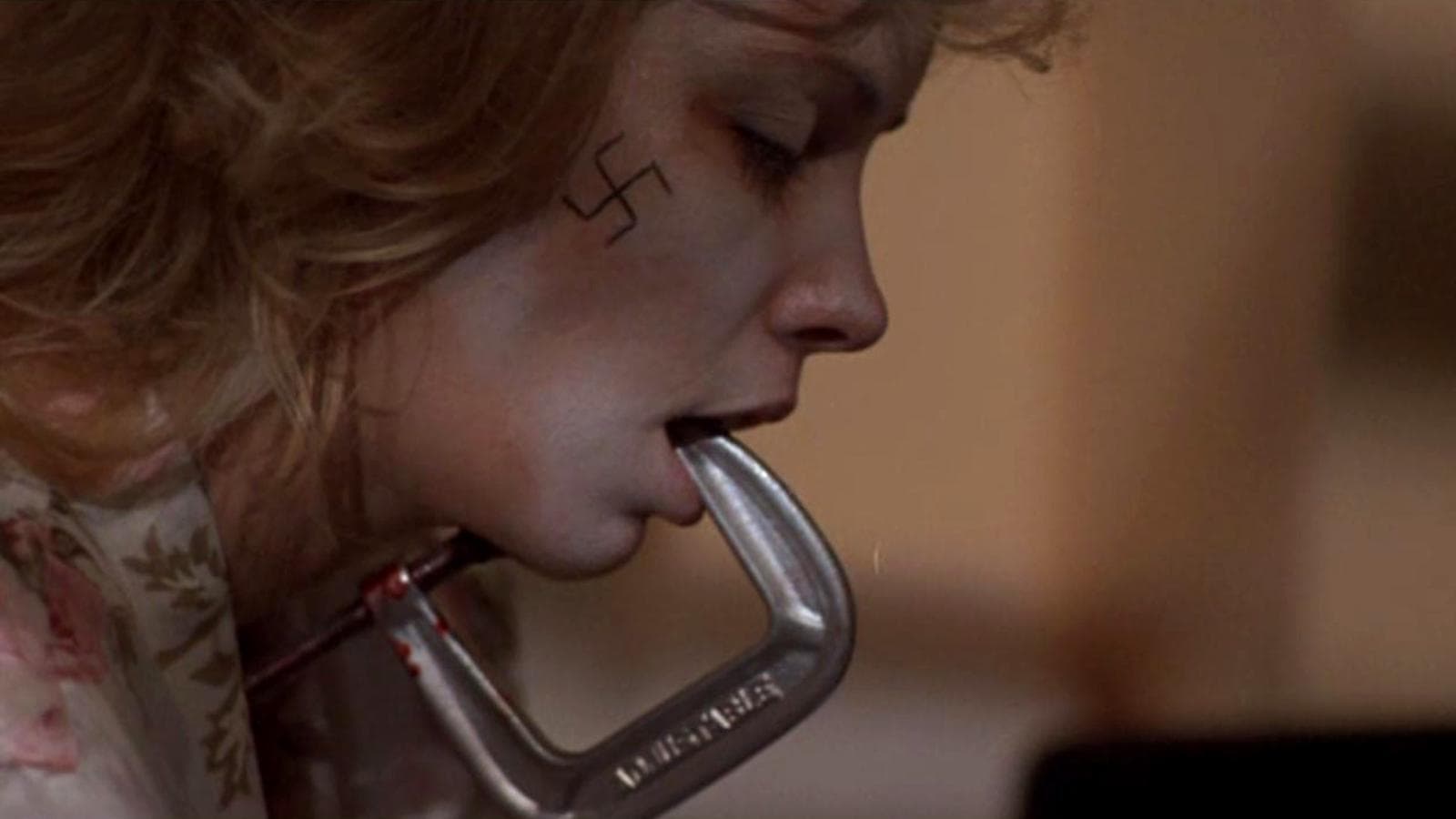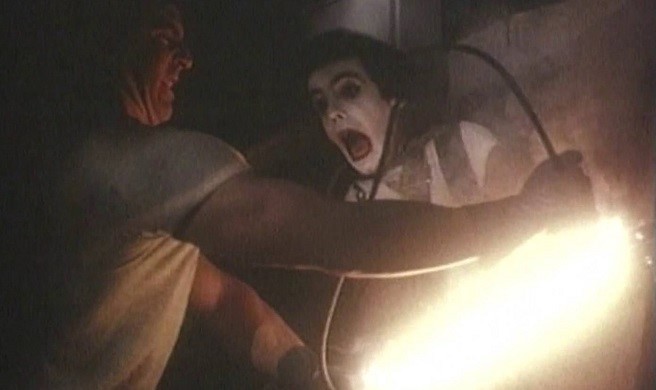![]()
Crawlspace (1986) Directed by David Schmoeller
A bloodcurdling, weird quasi-slasher narrated with a perceptible bawdy sense of exploitation humor so frivolous and casual that it feels jarringly irreconcilable with the daunting, earth-shatteringly misanthropic proportions of the self-destructive neo-Nazi politics that the film trenchantly satirizes. Psycho Klaus Kinski plays a disturbed former German doctor – son of an infamous Nazi doctor – landlord of a building in the U.S. where he rents apartments, his favorite hobbies are: Playing Russian roulette, peeping at his female tenants from the ventilation ducts, furtively harassing them by hurling rats into their rooms and engaging in lengthy, morbid conversations with his favorite captive, a wordless woman whose tongue has been severed, living in a precarious pet cage in the attic, where he chronicles with macabre relish his fascination with, and addiction to, killing. Pure Kinski routine.
David Schmoeller joins the list of daredevil filmmakers who had the legendary chutzpah to work with Klaus Kinski, thus, this is yet another film production that also joins the list of films that came dangerously close to being truncated due to Kinski’s belligerent temper, and the countless altercations he provoked during the shooting of the movie. Apparently, Italian producer Roberto Bessi almost fired him and recast another actor for the lead role. But you know what? I’m glad the latter was never consummated, because clearly the script written by Schmoeller is intended to suit Kinski’s surly, crabby appearance, and I don’t think I can picture any actor other than Kinski playing Crawlspace’s deranged protagonist.
After setting up the voyeuristic and masochistic nature of the sleazeball villain with a bleak decadent aesthetic, Crawlspace already has all the makings of a Kinski nightmare extravaganza. Schmoeller’s execution zigzags between mindless immorality and meaningful immorality, and Kinski exudes both with unparalleled acting dexterity. When the murderous rampage spirals out of control and the sociopathy of Kinski’s character descends into full-blown anarchy, the story penetrates truly creepy realms. It is there, in those murky depths, that Crawlspace reveals its fullest potential as transgressive cinema by mustering the necessary bravery to deal with its semi-satirical post-war commentary, as it exposes with alarming specificity the underlying Nazi ideological heritage, permanent trauma, hatred and obfuscation within the largely indoctrinated generation of Hitlerite youth failing to assimilate into modern Western society as grown-ups. It begins as bland, inert exploitation and concludes as a deleterious, poignant allegory of post-war nihilism.









